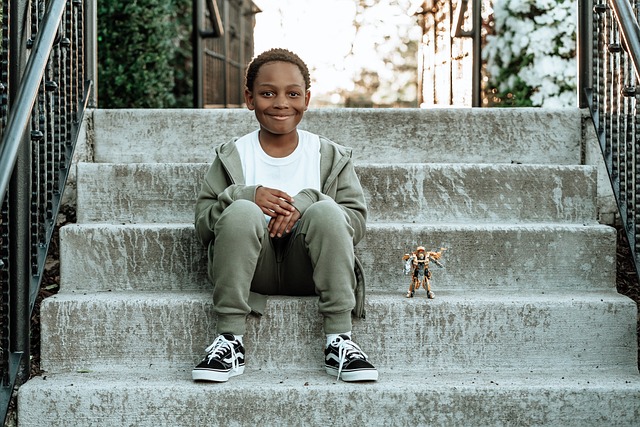Mediation services play a crucial role in helping families navigate custody arrangements by focusing on the child's best interests, fostering open communication and cooperative co-parenting post-separation. These services are designed to preserve familial bonds and ensure that decisions made consider the emotional health and stability of the children involved. Skilled mediators assist parents in expressing their concerns constructively, guiding them towards solutions that prioritize the child's well-being over conflict. Mediation is a family-centric process that is cost-effective and time-efficient compared to litigation, offering tailored solutions to each family's unique needs while maintaining the child's continuity and emotional stability. It is a supportive resolution process that addresses the complex needs of children and families, with mediators who are experts in family law and child development ensuring that all decisions made are informed by what is truly best for the child. Preparing for mediation involves gathering relevant documents and articulating clear expectations to facilitate a focused discussion on the child's best interests, culminating in a constructive and amicable agreement that benefits both the child and the family.
When navigating the complexities of custody discussions post-divorce, families often seek amicable and efficient resolutions. This article delves into mediation services as a pivotal resource in these scenarios, emphasizing their family-centric approach. Mediation offers a structured environment where the role of a mediator is paramount in guiding parents towards decisions that prioritize the well-being of their child or children. By exploring the benefits of mediation and preparing for your initial session, families can anticipate positive outcomes while safeguarding the emotional and practical needs of their offspring. Understanding these processes is crucial for anyone facing custody arrangements, ensuring a more harmonious and child-focused resolution.
- Understanding Mediation Services in Custody Discussions: A Family-Centric Approach
- The Role of a Mediator in Determining Child Custody: Ensuring the Best Interests of Children
- Benefits of Mediation for Families Navigating Custody Arrangements Post-Divorce
- Preparing for Your First Mediation Session: Steps to Take and Expectations for Outcomes
Understanding Mediation Services in Custody Discussions: A Family-Centric Approach

Mediation services play a pivotal role in custody discussions by providing a structured and supportive environment for families navigating the complexities of child custody arrangements. These services are designed to facilitate communication between parties, ensuring that the focus remains on the best interests of the child or children involved. A family-centric approach in mediation emphasizes the importance of maintaining familial relationships and promoting a harmonious post-separation co-parenting dynamic. Trained mediators guide the discussions, helping parents to articulate their needs and concerns while also exploring mutually beneficial solutions that prioritize the child’s emotional well-being and stability. By fostering an environment of collaboration rather than conflict, mediation services for custody discussions empower families to make informed decisions regarding their children’s futures.
Furthermore, mediation services are instrumental in addressing the diverse needs of each family member, acknowledging that every family is unique. This tailored approach contrasts with more adversarial legal proceedings, where the focus can often shift away from the child and towards the interests of the adults. In mediation, the child’s interests remain at the forefront, with a view to safeguarding their emotional health and security. The family-centric mediation process is not only cost-effective but also significantly less time-consuming than traditional litigation, allowing families to reach resolutions more swiftly and with less stress. This efficient resolution process is crucial in maintaining the stability and continuity of the child’s life post-separation.
The Role of a Mediator in Determining Child Custody: Ensuring the Best Interests of Children

In the delicate process of determining child custody, a mediator plays a pivotal role in ensuring the best interests of the children are at the forefront. The mediator facilitates communication between parties, guiding them through their emotional and practical considerations as they pertain to family dynamics and the child’s well-being. This neutral third party helps both parents articulate their concerns, navigate complex feelings, and work towards a mutually beneficial resolution that prioritizes the child’s stability and happiness. The mediator’s expertise in family law and understanding of child development ensures that decisions made during mediation are grounded in the child’s best interests, fostering an environment where both parents can collaborate constructively despite their differences.
The mediator’s role is not to decide what is best for the child, but to assist the parents in reaching a consensus based on the child’s needs and circumstances. This process often involves evaluating factors such as the child’s age, health, emotional ties, and educational needs, all while considering each parent’s ability to provide care and support. Through this structured and confidential dialogue, mediators help families avoid the acrimony of courtroom battles, promoting a more harmonious co-parenting relationship that is centered around the child’s ongoing emotional and physical development.
Benefits of Mediation for Families Navigating Custody Arrangements Post-Divorce

Mediation serves as a constructive avenue for families transitioning to new custody arrangements post-divorce. Unlike adversarial legal proceedings, mediation fosters a cooperative environment where the needs and well-being of the child are paramount. This collaborative approach allows both parties to communicate openly, reducing conflict and promoting a more amicable resolution that considers the emotional and developmental stages of the children involved. By focusing on the best interests of the child, families can craft custody agreements that prioritize stability, consistency, and a nurturing relationship with both parents. This not only aids in minimizing the psychological impact of divorce on children but also lays a foundation for ongoing cooperative parenting.
In mediation, families have the opportunity to tailor custody arrangements to fit their unique circumstances, ensuring that the solutions are family-centered rather than one-size-fits-all. The mediation process is designed to be less costly and time-consuming than litigation, allowing families to resolve their disputes more efficiently. This efficiency not only saves financial resources but also reduces the stress associated with prolonged legal battles. Additionally, mediation empowers parents by giving them a voice in the decision-making process, fostering a sense of ownership over the agreed-upon terms and encouraging adherence to the arrangement for the long-term benefit of their child or children.
Preparing for Your First Mediation Session: Steps to Take and Expectations for Outcomes

When preparing for your first mediation session regarding custody discussions, it is crucial to approach the process with a clear understanding of your objectives and the needs of your child or children at the forefront. Prior to the session, gather all relevant documents related to the child’s well-being, including medical records, school reports, and any previous court orders. This preparation ensures that you are equipped to discuss the child’s best interests effectively with the mediator. It is also beneficial to reflect on your child’s living situation, daily routine, and support systems, as these factors will be central to the mediation process.
In addition to organizing documentation, it is advisable to set clear expectations with your mediator. Communicate openly about what you hope to achieve through mediation, focusing on solutions that prioritize the family’s stability and the child’s emotional and physical needs. A skilled mediator will guide both parties in exploring options that are in the best interest of the child, fostering an environment where constructive dialogue can lead to a mutually agreeable resolution. Remember to listen actively and consider the perspectives presented by all family members involved, as this collaborative approach often yields the most equitable and lasting outcomes for everyone concerned.
In concluding our discussion on mediation services in custody discussions, it is clear that these family-centric approaches offer a constructive and collaborative path for families navigating post-divorce custody arrangements. Mediators play a pivotal role in guiding parents towards decisions that prioritize the well-being of their children, fostering an environment where the interests of the child or children are at the forefront. The benefits of mediation are manifold, from reducing conflict to providing a more cost-effective and timely resolution compared to litigation. For those preparing for their first mediation session, understanding the process and setting realistic expectations can lead to more positive outcomes. Ultimately, the goal is to support families in transition by facilitating amicable agreements that serve the best interests of the child or children involved. Mediation stands as a testament to the potential for resolution outside of court, where families remain at the center of decision-making.
